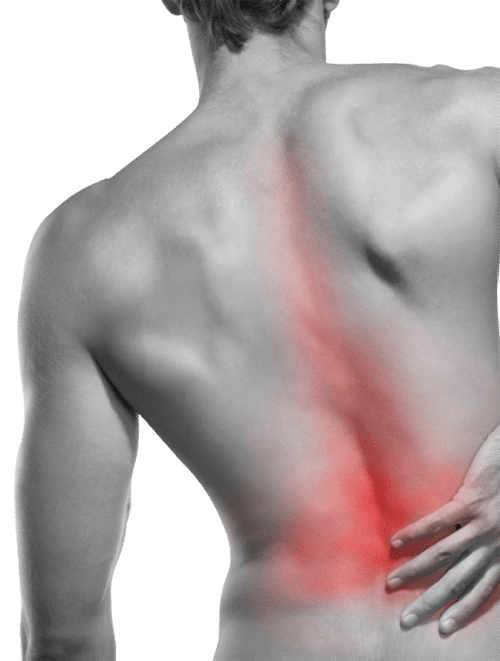How to treat a herniated disc?
A herniated disc, also known as a slipped or ruptured disc is a condition in which the inner, gel-like material of a spinal disc protrudes through a tear or crack in the outer layer of the disc. This can pressure nearby nerves and cause pain, numbness, and weakness in the affected body area. Herniated discs can occur in any part of the spine, but they are most common in the lower back. Treating a herniated disc often involves a combination of self-care measures and medical treatments. Here are six of the best treatments for a herniated disc.
RICE
RICE stands for rest, ice, compression, and elevation. These simple, low-risk techniques can help reduce pain and swelling caused by a herniated disc. Resting allows the injured area to heal while applying ice can help reduce inflammation and numb the affected area. Compressing the area with a wrap or brace can also help reduce swelling, and elevating the affected limb or body part can help reduce blood flow to the area.
Physical Therapy
Physical therapy is a type of treatment that uses exercises and other techniques to help improve mobility, reduce pain, and promote healing. A physical therapist can develop a customized treatment plan that includes exercises to stretch and strengthen the muscles around the affected area and techniques to improve posture and reduce stress on the spine.
Nonsteroidal Anti-Inflammatory Drugs (NSAIDs)
NSAIDs are a type of medication that can reduce pain and inflammation. Examples include ibuprofen and naproxen. NSAIDs are available over the counter or by prescription, depending on the severity of the condition. They can be taken orally or applied topically to the affected area to alleviate inflammation, eliminating the impetus for chronic pain.
Epidural Steroid Injections
Epidural steroid injections are a type of injection that delivers a corticosteroid medication directly to the affected area. The medication can reduce inflammation and pain in the affected area. These injections are typically given in a series of three or four over several weeks.
Hyaluronic Acid Injections
Hyaluronic acid is a naturally present substance in the body and helps lubricate and cushion the joints. Hyaluronic acid injections can treat a herniated disc by reducing inflammation and pain in the affected area and improving joint mobility.
Radiofrequency Ablation
Radiofrequency ablation is a procedure in which a small needle is inserted into the affected area to deliver radiofrequency energy. This energy can disrupt the nerve signals causing pain and relieve the affected area.
It’s important to note that the best treatment for a herniated disc will depend on the severity and the individual’s specific symptoms. It’s always a good idea to discuss treatment options with a healthcare provider to determine the best course of action. Overall, a herniated disc can be a painful and debilitating condition, but with the right treatment, it is often possible to find relief and improve function.

What are the most common herniated disc symptoms?
The most common symptoms of a herniated disc include:
- Pain: Pain is the most common symptom of a herniated disc. The pain may be sharp or dull and may be present in the affected area or radiate to other body parts.
- Numbness and tingling: A herniated disc can put pressure on nearby nerves, which can cause numbness and tingling in the affected area or other parts of the body.
- Weakness: A herniated disc can also cause weakness in the affected area or in other parts of the body. This may make it difficult to move or use the affected limb or body part.
- Difficulty walking: In some cases, a herniated disc can cause difficulty walking or balance issues. You may have trouble walking straight and have a high risk of falls.
- Difficulty with bowel or bladder control: A herniated disc that affects the spinal cord can cause problems with bowel or bladder control. This is a serious complication.
It’s important to note that not all people with a herniated disc will experience the same symptoms, and the severity of the symptoms can vary widely. Some people may have mild symptoms that come and go, while others may have severe and constant symptoms that interfere with their daily activities. If you are experiencing any of the above symptoms, visiting our back centers in New Jersey for diagnosis and treatment is important.
Which doctor for herniated discs?
When it comes to herniated discs, you should always consider consulting an experienced interventional pain specialist. These specialists have specialized training and knowledge of the anatomy, physiology, and biomechanics of the spine and have the professional expertise required to help you determine the best course of treatment for your herniated disc. With their help, you can get back to living a pain-free life.
Back Center New Jersey is a group of state-of-the-art back centers led by highly-skilled, board-certified interventional back pain doctors. Our pain specialists carefully examine your spine, discuss your symptoms, and administer cutting-edge imaging tests to visualize the root cause of your back pain and curate a personalized treatment plan. Our back specialists only recommend minimally invasive pain treatments that address the root cause of chronic back pain without relying on opioids or surgery.
You can find our back centers in Clifton, Paramus, Woodland Park, and West Orange. You can find our Clifton office at 1117 US-46, Suite 205 Clifton, right off NJ-3. Please schedule an appointment at your nearest back center in New Jersey.





